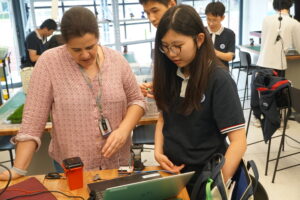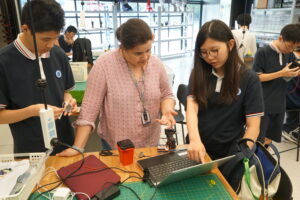February 11 is International Day of Women and Girls in Science—a time to recognize the contributions of women in STEM fields and to inspire the next generation of female scientists, engineers, and innovators. We are fortunate to have many inspiring female science educators at BASIS International & Bilingual Schools. We invite you to meet some of the women leading the way in our science classrooms as they share in their own words what led them to science education, how they encourage girls to explore science fields, and the moments that make them proudest as teachers.
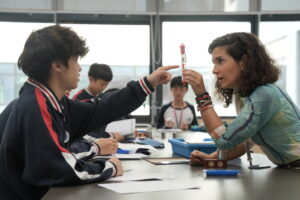
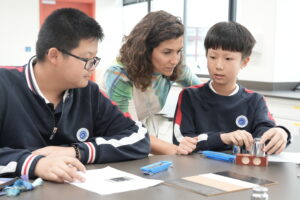
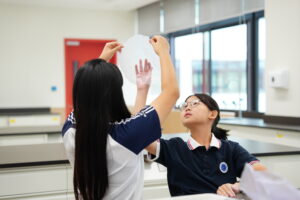
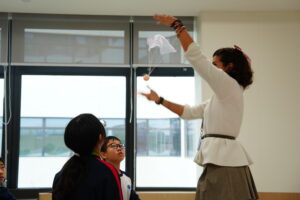
What inspired you to pursue a career in STEM education?
I graduated as an Industrial Engineer and worked in the field for several years before realizing my true passion lies in making a meaningful impact and leaving a legacy through education. Teaching became the ideal path to inspire generations of curious and enthusiastic learners. My engineering background enables me to seamlessly integrate physics with mathematics, art, technology, language, and even physical education! The opportunities to connect what we teach to real-life applications are endless. I am constantly amazed by the boundless potential educators have to inspire students and nurture a generation of problem-solvers and leaders. From building bridges using simple tools like syringes and popsicles to exploring speed and velocity by running on a track, the possibilities are limitless. The sky truly is the limit!
How do you encourage girls to explore STEM fields?
The answer is straightforward: Many girls tend to be cautious about making mistakes and aim for perfection from a young age. My focus with them lies in building two key qualities: confidence and courage to embrace mistakes and learn from them. While it often takes time to shift these deeply ingrained habits, the transformation is remarkable—they start creating incredible results. One of my favorite quotes to inspire them is, “Mistakes are proof that you are trying!”
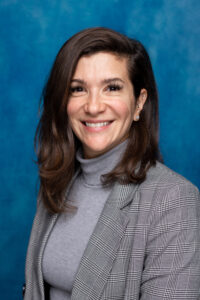
Hebah Al Khalaileh
Physics Teacher
BASIS Bilingual School Guangming Shenzhen
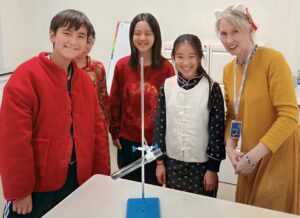
How do you encourage girls to explore science fields?
By helping girls recognize that their interest and curiosity in science is important and valuable. There are scientific problems to be solved—e.g., climate change, energy, sustainability, etc.—and we need girls to be prepared to commit to scientific work. There is too much that needs sorting out in the world to leave it all to the boys.
What’s your proudest moment as a science educator?
One of my former middle school students informed me that his goal in life was “to make people happy and smile.” He worked incredibly hard throughout school and university and is now a successful, award-winning cosmetic dentist. I adore following his clinic’s social media to see how he helps his patients regain their smiles and confidence. It’s fantastic that the ambition he had as a twelve-year-old boy came true.
Was there a woman in science who inspired you?
Two women: Dorothy Hodgkin and her student, Mrs Margaret Thatcher.
Dorothy Hodgkin was awarded the 1964 Nobel Prize in Chemistry for solving the atomic structure of molecules such as penicillin and insulin, using X-ray crystallography. Aged 10, Dorothy recognized she was “captured for life by chemistry and by crystals.” As part of my doctorate research, I synthesized original crystals and worked out their structures. Crystals are beautifully breathtaking, and their chemistry is fascinating. After all, diamonds are a girl’s best friend!
Dr. Julie Connolly
Chemistry Teacher
BASIS International & Bilingual Schools Wuhan
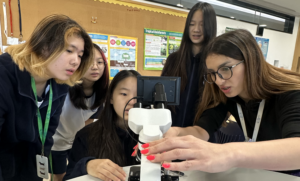
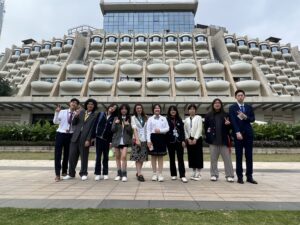
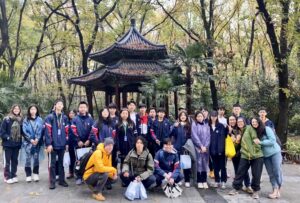
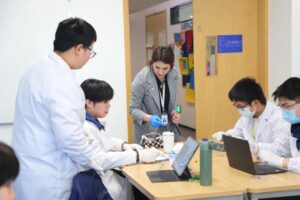
What sparked your passion for science education?
Growing up surrounded by a family of doctors and engineers, I found myself immersed in a world where science and discovery were part of everyday life. From a young age, I was captivated by the mysteries of the cosmos—wondering about the potential for life beyond Earth. My fascination with biology and the wonders of life science has always been a driving force in my journey.
How do you encourage girls to explore STEM fields?
One of my missions as an educator is to create an inclusive and engaging environment where girls feel both supported and empowered to explore science, technology, engineering, and mathematics (STEM). I believe in showcasing female role models in these fields, illustrating the incredible possibilities that lie ahead. Exciting opportunities are pivotal for sparking interest, so I introduce my students to international competitions and hands-on experiences. At Basis International School Nanjing, we participated in a myriad of prestigious competitions, including robotics challenges, which helped ignite a passion for science in my students. Each year, I witnessed more of them discovering their love for science, and I realized that organizing calls and activities linked to their interests was crucial in making science relatable and enjoyable.
What’s your proudest moment as a science educator?
I’ll never forget the transformative moment when one of my students, who initially struggled with science, approached me with newfound enthusiasm. After collaborating on a project, she shared her desire to pursue a career in medicine. When she told me that wearing a white lab coat made her feel like she had found her calling, my heart soared. Witnessing her journey from doubt to determination was not just fulfilling; it reaffirmed my purpose as an educator.
Was there a woman in science who inspired you?
A key figure in my journey is Elizabeth Blackburn, whose words resonate deeply with me: “I didn’t want just to know the names of things. I remember really wanting to know how it all worked.” As the 2009 Nobel Prize winner in Physiology or Medicine, Blackburn’s perseverance in male-dominated fields and her groundbreaking contributions to science are inspiring to anyone who aspires to enter this world, especially women. She shows us that curiosity and determination can lead to incredible achievements.
Through my work, I hope to inspire the next generation of scientists, especially young women, to embrace their passions and explore the fascinating world of STEM. Together, we can unlock the door to endless possibilities and pave the way for a brighter future in science!
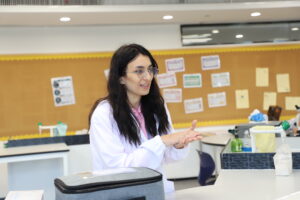
Ulya Shirinzade
Biology Teacher
BASIS International School Nanjing
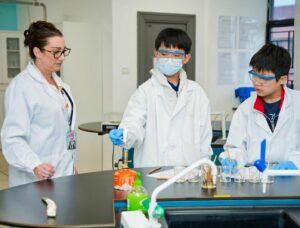
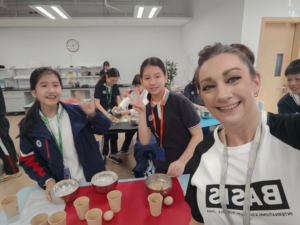
I had it all figured out. I was attending UAB Medical School to become a Radiologist. From a young age, I was drawn to the sciences and the medical field. The allure of helping others and the fascinating intricacies of radiology, particularly the study of bones, captivated me. I was accepted, living my college dream life, making all the grades in all my courses. However, my time in the radiology program presented a significant hurdle: a professor whose harsh demeanor and lack of support created a challenging learning environment.
This experience became a pivotal moment in my life. Instead of nurturing a love for my passion, my professor instilled fear and frustration, which proved to be life-changing. I made the difficult decision to leave the program and pursue a degree in science with a teaching certification. In that moment, I vowed to myself that I would never be that kind of teacher.
Recognizing the importance of this decision, I embarked on a new journey: to make a positive impact as an educator, shaping students’ experiences in the classroom. Motivated by this revelation, I shifted my focus to education, and by the age of 21, I had secured my first science teaching position. I later pursued a master’s in biology, driven by a determination to create a supportive and engaging atmosphere for my students. My goal was to inspire curiosity and a passion for science, ensuring that my classroom was a place where students felt safe to ask questions and explore new ideas.
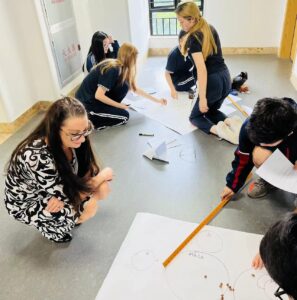 Today, I take pride in being an educator committed to nurturing the next generation of scientists and thinkers. My past experiences have shaped my teaching philosophy, serving as a constant reminder of the profound impact a caring and supportive teacher can have on a student’s life or the impact the “other” kind of educator I came across as an undergrad, pushing them away from what they love.
Today, I take pride in being an educator committed to nurturing the next generation of scientists and thinkers. My past experiences have shaped my teaching philosophy, serving as a constant reminder of the profound impact a caring and supportive teacher can have on a student’s life or the impact the “other” kind of educator I came across as an undergrad, pushing them away from what they love.
As an educator, I understand that not every subject resonates with every student. However, in my science classroom, I strive to create an atmosphere where all students feel valued and empowered to express their ideas. I use inclusive language and examples that resonate with diverse backgrounds, particularly focusing on engaging female students. By relating scientific concepts to real-world situations—such as environmental science, health, cooking, and technology—I aim to illustrate how science directly impacts their lives. My hope is to engage and encourage girls to ask questions, explore, and collaborate, making science both accessible and enjoyable.
I also emphasize the importance of resilience and learning from mistakes. I remind my students that challenges are a natural part of the learning process, and it is through these experiences that growth occurs.
In my own family, I am proud to pass down my love of science to my two daughters, aged seventeen and seven. I often find myself encouraging and even tutoring them in their science studies, as well as conducting fun experiments when I am home. I am thrilled to share that my seventeen-year-old will be attending my alma mater this fall to pursue a degree in forensic science, and my seven-year-old has achieved the “A” honor roll in Grade 1. As a mom, an educator, a friend, a coworker, having the pleasure of teaching these children is my proudest moment. Knowing that I made an impact. I hope to be an inspiration not only to my own children but to all the children I have taught over the past 25 years. Hearing from students throughout the years and seeing them pursue their dreams is wonderful. I look forward to seeing those light-bulb moments for many years to come. It’s that support and reciprocity driving me to keep teaching.
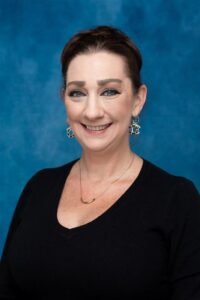
Katherine Townson
7th Grade Biology Teacher
AP Environmental Science Teacher
BASIS International School Guangzhou
What inspired you to pursue a career in STEM education?
I’ve always been fascinated by how science and technology can solve real-world problems and improve lives. Growing up, I had a few incredible mentors who made STEM subjects accessible. I knew I wanted to pay that forward by helping students. I love teaching and especially want to inspire young women to see themselves as capable and confident problem-solvers in STEM fields.
I have personally witnessed many of my female students navigate the education system, attend prestigious universities, and ultimately achieve great success in their careers in engineering and other STEM fields. Nothing makes me prouder than having been part of this journey and seeing the confident women these individuals become.
How do you encourage girls to explore STEM fields?
Confidence, exposure to STEM, and support are the three most fundamental principles for encouraging girls and women in STEM. The most important skill to build in women—and any student, for that matter—is confidence. It is crucial that young women have a supportive environment where they feel comfortable taking risks and asking questions. Equally important is that, from an early stage, women should be encouraged and supported to take on STEM-focused projects, competitions, and extracurricular activities. These have always been my guiding principles in my teaching career, as I firmly believe that this is how we build resilient students.
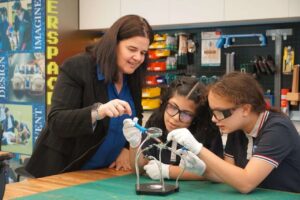
Chantal Rudman
AP Physics and Robotics Teacher
BASIS International School Hangzhou
Conclusion
The stories shared by our incredible educators across our school network highlight the passion, perseverance, and impact of women in STEM education. Their passion for teaching not only shapes the minds of future scientists but also challenges stereotypes, opening doors for more young women to see themselves in STEM. We celebrate our inspiring teachers at BASIS International & Bilingual Schools and the vital role they play in shaping the next generation of women in science.
Learn more about teaching abroad with BASIS International Schools on our careers website.
